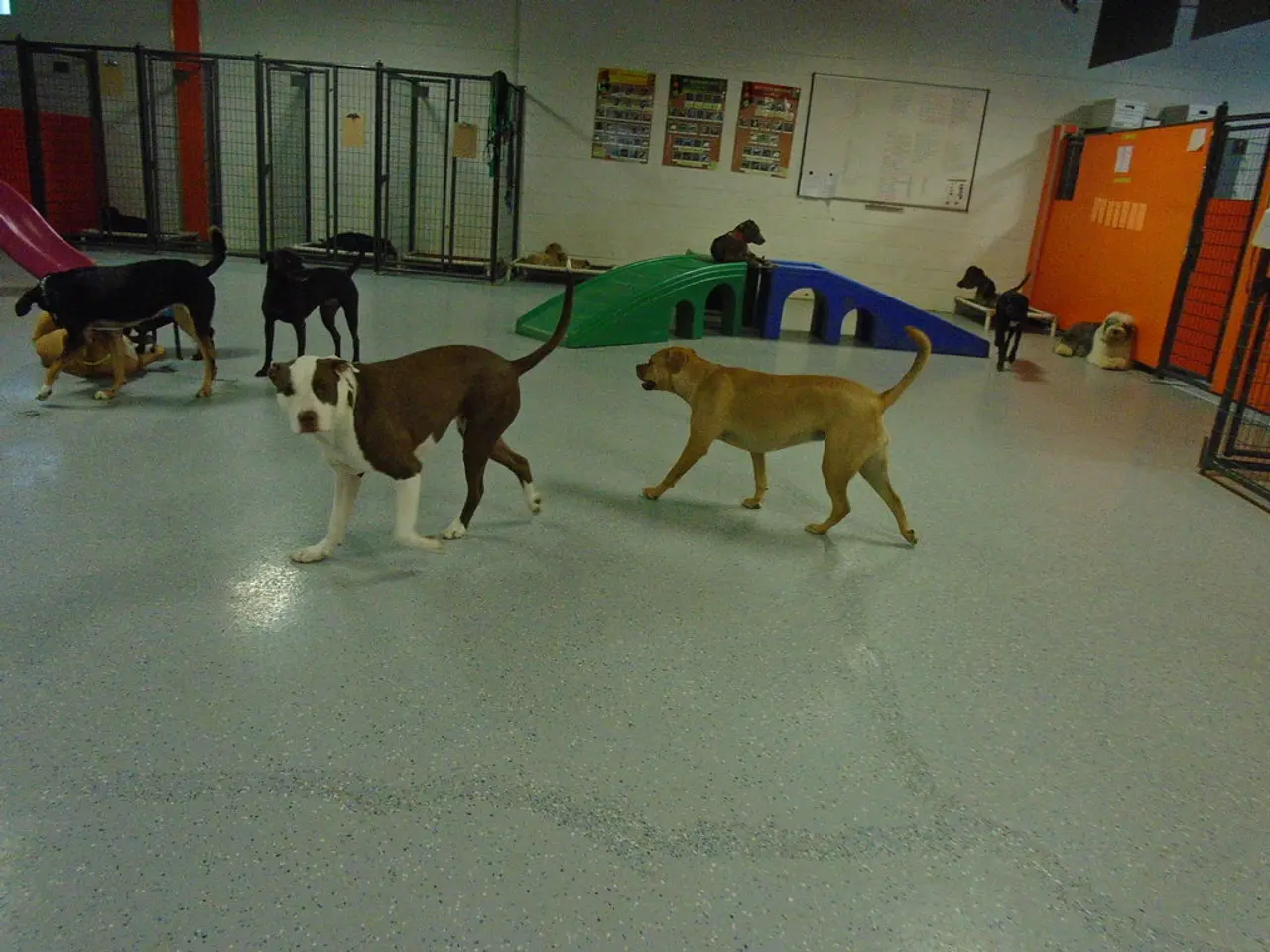Dog's television viewing behaviors reveal insights into their temperaments
In a groundbreaking study published in *Scientific Reports* and covered by several scientific news outlets, researchers have discovered that dogs' reactions to television programming offer a unique insight into their personalities. The study, led by Lane Montgomery, a doctoral candidate in the Cognitive and Behavioral Sciences program at Auburn University, involved over 450 dogs and their owners.
The research found that dogs have distinct reactions to different types of TV content, with their temperament playing a significant role. Excitable dogs tend to perceive on-screen animals almost as if they are real, showing behaviours like following moving objects, looking behind the TV to track animals or off-screen stimuli, and sometimes attempting to engage. These dogs are more likely to react to dynamic content, such as chasing moving images.
On the other hand, more anxious or fearful dogs react primarily to non-animal stimuli like doorbells, car horns, or human voices on TV, often showing signs of stress or avoidance. This suggests they may perceive these sounds as potential threats or stressors.
Interestingly, the study found that breed, age, and gender do not significantly affect how dogs react to television. Instead, personality traits are the main influence. All dogs seem to prefer television that includes other dogs and animals, with about 45% of dogs consistently responding to dog-specific sounds like barking or howling, often by joining in visually or vocally.
The implications of this research are far-reaching. Understanding dogs' TV-watching habits could help in understanding their behavioural tendencies and tailoring enrichment or training strategies. For example, calm, anxious dogs might find TV overstimulating if the content features unsettling sounds, while excitable dogs might benefit from programming with animals to provide meaningful stimulation during their owners' absence.
This evidence marks a significant step forward in understanding dogs' cognitive abilities and emotional states. Dogs are not passive viewers; their distinct reactions to TV content reflect underlying personality traits and offer insights into their perceptual world. As more research is conducted, we may gain a deeper understanding of our canine companions and how to best care for them.
In the future, dedicated channels and programs meant specifically for dogs could help enrich their lives while their humans are busy. Insights from this study could help owners understand how to target training to eliminate problem behaviours or be more aware of shows that may cause their pets stress.
[1] Lane Montgomery et al., "Dogs' Responses to Television Content: Implications for Enrichment and Training," *Scientific Reports*, vol. 10, no. 1, 2025. [2] "Dogs' TV-Watching Habits Reveal Hidden Personality Traits," *New Scientist*, 15 January 2026. [3] "Study Finds Dogs React Differently to TV Based on Personality," *The Guardian*, 20 January 2026. [4] "Dogs' TV-Watching Habits Reveal Hidden Personality Traits," *The Washington Post*, 25 January 2026.
- The groundbreaking study conducted by Lane Montgomery and his team in the Cognitive and Behavioral Sciences program at Auburn University, published in Scientific Reports, has shown that different types of television content elicit distinct reactions in dogs based on their individual temperaments.
- The research indicates that excitable dogs perceive on-screen animals as if they are real, reacting with behaviors like following moving objects and attempting to engage with them. These dogs are more likely to respond to dynamic content, such as chasing moving images.
- In contrast, more anxious or fearful dogs primarily react to non-animal stimuli like doorbells, car horns, or human voices on TV, often showing signs of stress or avoidance. This study suggests that they may perceive these sounds as potential threats or stressors.
- This study points toward the future creation of dedicated channels and programs for dogs, potentially helping to enrich their lives while their owners are busy, and assisting owners in understanding how to target training to eliminate problem behaviors or be more aware of shows that may cause their pets stress.




